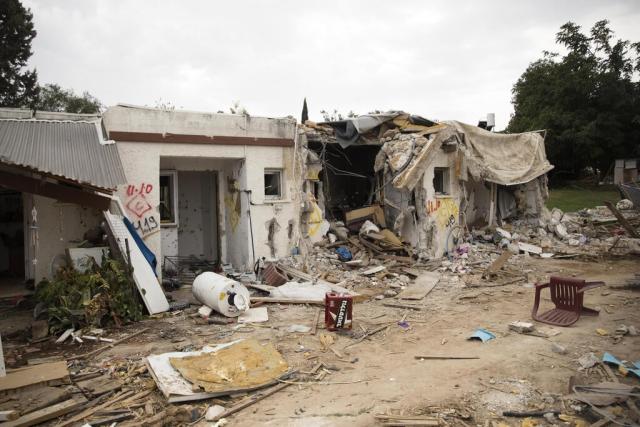In a discussion held in the Knesset's health committee, Attorney Daniel Raz, the national commissioner for involuntary hospitalization in the legal aid department of the Ministry of Justice, made a troubling revelation. He stated, "Quite a few of the partygoers were forcibly hospitalized." The number of individuals who were involuntarily hospitalized due to mental distress as a result of the recent events exceeded ten.
During the discussion focused on the national plan for resilience and mental health in Israel, Attorney Raz expressed his disbelief, saying, "I did not believe that we would reach this state, with the cost of 1,400 NIS per day of hospitalization when we could have prevented it from the beginning." This candid admission highlighted the urgent need for better mental health support and prevention measures.
In this documentation, innocent young people can be seen during an escape from the #massacre in the Nova Nature Party area. Some of them had already been shot and some did not understand what was happening. #Hamas #israel #palestine #gaza pic.twitter.com/mtRc9bdGK5
— Global Conflicts (@Kevin88_H) November 10, 2023
MK Yoni Meshariki, the chairman of the committee, emphasized the gravity of the situation, stating, "The war has created an unprecedented mental health crisis, and we are once again calling on the Ministry of Health to coordinate and bring together all the relevant bodies in Israel to address this crisis."
The meeting also revealed disturbing data regarding the unpreparedness of the mental health system to handle an event on the scale of the tragic incident in Israeli towns bordering Gaza on October 7. Even before the outbreak of the conflict, the public mental health system in Israel was already facing significant deficiencies. These issues included repeated claims of inadequate budget allocation, a shortage of qualified personnel, long waiting times for psychotherapeutic or psychiatric treatment, and subpar infrastructure in mental health hospitals.
Moreover, there was a lack of comprehensive data to assess the system's performance. The Ministry of Health did not have complete information on all recipients of psychological assistance since the start of the conflict, leaving a critical information gap. The timeline for collecting this data and its scope remained uncertain, raising questions about the adequacy of future mental health support.
Singer and actor of the TV series Fauda, Idan Amdi, raised the Nova Festival flag on a liberated beach in the Gaza Strip.
— Michael Weingardt (@Michael_Wgd) November 12, 2023
Idan Amdi is a reservist and is participating in the fighting in Gaza.
Hamas terrorists carried out a massacre on October 7 at the Nova festival in Israel… pic.twitter.com/aUQzHRr7vO
In response to these challenges, Moshe Bar Siman Tov, the Director General of the Ministry of Health, acknowledged the severity of the situation, labeling it a "national mental health event." He noted a significant increase in the demand for mental health care and assistance, with expectations of further growth. Bar Siman Tov stressed the importance of effective and swift treatment, which could potentially reduce the need for prolonged care by 50%. He emphasized the need for comprehensive support within the community, families, and the education system, tailored to each patient's specific needs.
Recognizing the urgency of the situation, the Treasury was already considering substantial salary increases for psychologists in the public system. Additionally, there were plans to significantly increase the number of psychiatrists, both for adults and children, to address the growing mental health needs in the country. These measures aimed to bolster the mental health infrastructure and ensure better support for individuals in distress.


